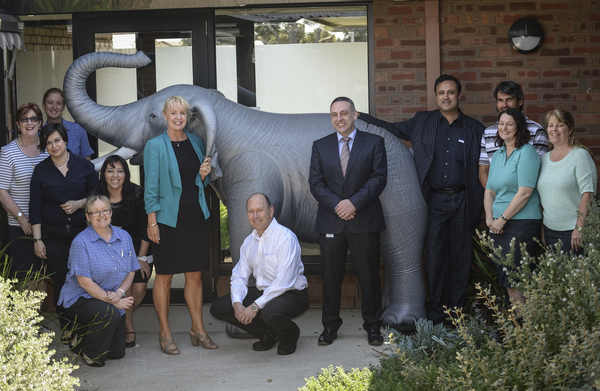The Geelong Clinic has partnered Australian Private Hospitals Association to promote Mental Health Week from 5 to 11 October.
The clinic has been hosting an inflatable elephant to help destigmatise mental illness and promote the message of creativity and hope.
The elephant represents the often silent suffering people can experience through not acknowledging the elephant in the room of mental illness.
The elephant also represents the barriers of recovery such as guilt, shame, trauma and worthlessness that hold back growth and healing.
The message that The Geelong Clinic and the Australian Private Hospitals Association seek to convey is that it’s okay to talk about mental health and to seek help.
They believe that consumers, families and carers too often avoid the topic because it is so confronting.
However, with as many as one in four Australians experiencing a mental health condition in one year the elephant in the room clearly is the need for more discussion and support to assist all Australians to understand the need to encourage on another and the importance of seeking and utilising help.
Like the elephant uses its trunk to communicate and gain sustenance, it is important that people continue to reach out to family, friends and professionals until they obtain the help that best meets their needs.
As many mental health conditions can relapse, its important that both consumers and their supporter have realistic expectations and keep persevering.
The need to practice a range of skills is also beneficial to promoting recovery, which at times can be challenging. However, a range of therapies and interventions are available to assist recovery toward productive and meaningful lives.
The Geelong Clinic offers a range of private treatment options including inpatient stays and up to a dozen day programs with support for complex conditions such as bipolar, post-traumatic stress and borderline personality disorders to high-prevalence conditions including anxiety and depression.
Specialised inpatient programs include services supporting eating, addictive and high prevalence disorders such as anxiety and depression.
For Mental Health Week the clinic has been consulting widely to develop tip sheets for consumers, carers and professionals on how best to reach out to people experiencing mental illness.
Expansion of private mental health services

Digital Edition
Subscribe
Get an all ACCESS PASS to the News and your Digital Edition with an online subscription
Building on learning through tech
Bellarine kindergarten students will have better access to more inclusive, accessible and welcoming educational environments thanks to new funding.
Ten early learning...








